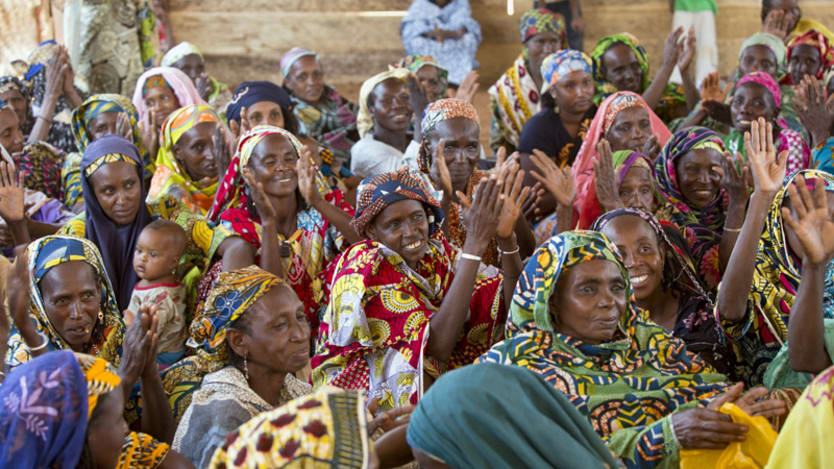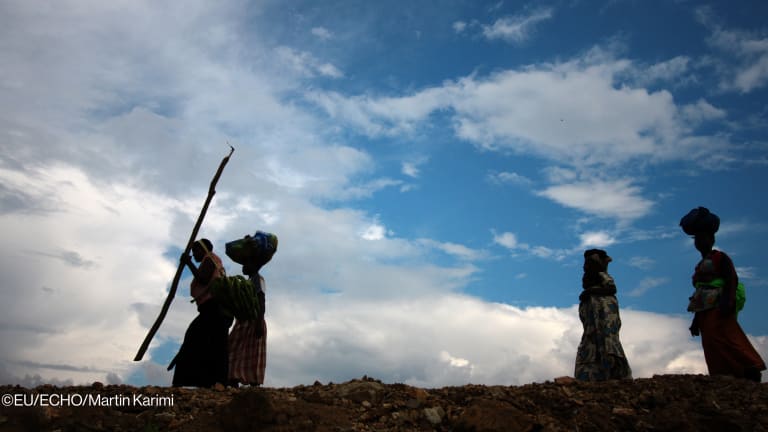3 ways the world can do more and do better for refugees

At his Leaders’ Summit on Refugees last week, President Barack Obama called for a renewed commitment to protect and empower women and girls, who are often the most vulnerable and forgotten members of refugee and displaced communities.
ISIS and Boko Haram’s atrocities are some of the most sensational and widely publicized examples of the risks conflicts and crises pose to women and girls. Elsewhere, too, combatants have used gender-based violence to terrorize and control innocent civilians. And even when women and girls flee warzones, danger may stalk them, as they crowd into camps or slums, lose their livelihoods, and live among strangers.
Here are three ways to meet these challenges.
1. Protect displaced women and girls from gender-based violence
This means building effective protection measures into every emergency response. And humanitarians on the front line need to be trained and ready to implement these measures, and not ignore or leave for later essential policies to protect women.
Aid workers should never wait for reports of gender-based violence before taking action — by then it is too late. From the very start of a crisis, we must recognize the danger of attacks and take steps to prevent them. The United Nations recently released guidelines on how to identify risk factors and take effective countermeasures. These will help first responders, U.N. agencies, international organizations, NGOs, and governments keep women and girls safe.
U.S. Secretary of State John Kerry’s Safe from the Start initiative aims to help humanitarians prevent gender-based violence and aid survivors. Based on that work, we have learned that as part of a standardized response, installing solar lights can allow women to safely walk to water pumps and latrines at night; and it is essential to set up women’s centers that offer psychological, legal and medical services. When refugees learn about gender-based violence from the beginning through billboards, posters, radio talk shows, at sports events and in discussion groups, there is a huge impact.
2. Ensure women and girls have access to education and jobs
At the Leaders’ Summit, nations committed to giving a million more refugees the legal right to work and a million more refugee children and youth the opportunity to go to school. We must make sure women and girls benefit fully from these opportunities to learn, find jobs and rebuild their lives.
In order to support themselves and their families, refugee women need economic and social opportunities, day care services, vocational and literacy training, and much more. They also need programs that address the power dynamics between men and women in the home so when they make money, they can keep and control it.
Girls also need help coping with the barriers and threats they face. In many cultures, gender bias runs deep and girls’ status becomes more precarious when the family is uprooted. Struggling refugee families may see girls as a burden or worry that they can no longer protect them. Some resort to forcing their young daughters into marriage. Early and forced marriage has doubled among Syrian refugees living in Jordan and grows more common anywhere refugees live in limbo and fear for their future.
Marriages can expose girls to violence, emotional abuse, sexually transmitted diseases and serious complications from high-risk pregnancies. These girls almost always drop out of school. Their children are less healthy and more likely to remain trapped in poverty.
We are working to help girls enter classrooms instead of marriages. The U.S. Global Strategy to Empower Adolescent Girls strives to make education safe, free and compulsory throughout the world and to keep girls enrolled in school, even if they are married and have children. Funding specifically for girls who have fled the war in Syria provides education and legal assistance and warns refugee and local communities about the consequences of early and forced marriage. But more must be done to invest in this generation, and we invite others to join us in investing in girls’ success so they have a voice in their future.
3. Invest in efforts to advance gender equality now
Refugees are spending more time in exile. Roughly one-in-three refugees today is caught in protracted refugee situations. The U.N. reports that these refugees remain displaced for an average of 26 years, nearly three times the average in 1993. Long-term displacement requires new approaches to aiding refugees and the countries and communities that host them. Short-term humanitarian relief helps refugees survive; development aid helps refugees and their hosts thrive.
Life-saving deliveries of food and water are obviously needed in the early days of a crisis. But protection also save lives and, in the long-term, one of the surest ways to promote stability, prosperity and peace is to empower women and girls.
No community can afford to leave women and girls behind. That is certainly true of refugees — and of the communities that host them.
Women and girls must be able to participate in the decisions that affect their lives. We must safeguard their rights and provide the training, the freedom and the services they need to reach their potential, not only because it is sound policy, but because it is right.
Join the Devex community and access more in-depth analysis, breaking news and business advice — and a host of other services — on international development, humanitarian aid and global health.
Search for articles
Most Read
- 1
- 2
- 3
- 4
- 5









